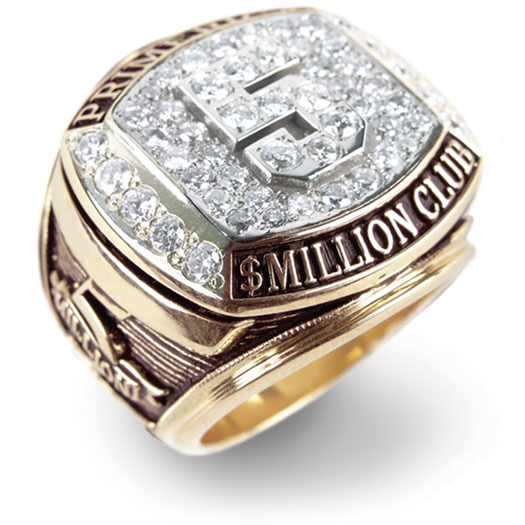Starting an Internet business is something you should consider, no matter what the economy looks like. Here’s why…
First, online sales have never been stronger.
Second, remember that, unlike local brick-and-mortar businesses that are typically at the mercy of the local economy, you have access to an entire global market. So even if U.S. shoppers are feeling pinched, you’ll still have plenty of other customers to turn to.
Next, consider the start-up costs of an Internet business. Unlike traditional businesses, you can get your website running for less than the cost of a couple of nights out on the town. So you don’t need to tie up your “emergency” cash – or go into debt – to get started.
And speaking of debt, with such low initial costs, you won’t have to worry about trying to qualify for a start-up loan, something that’s likely to get much tougher during the current credit crunch.
Finally, remember that you can start your Internet business even while you’re working your “day” job, so you can continue to enjoy a regular source of income while you work on making your site successful. Try that with a brick-and-mortar business.
At the end of the day, starting your own Internet business during a "slow economy" (or whatever they’re calling it) is an excellent form of job security.
But before you jump in and start your website… remember that there’s one big (and I do mean BIG) newbie mistake you must avoid if you hope to build a successful online business in this turbulent economy.
To start a truly successful online business, you must first identify a “niche market.”
No matter how often I talk about it, I still see many well-intentioned people getting this wrong. (Lots of established site owners are getting it wrong, too.) When I get questions or when I look at comments on my blog, I hear and see the same things all the time:
“My niche market is young business professionals.”
“My niche market is women over 40 who are interested in their health.”
“My niche market is people who like to garden.”
These are NOT niche markets!!
These are huge and undefined groups of people who all have different goals, interests, and experiences. And trying to sell effectively to a diverse group like that is going to be an exercise in failure.
You’ll likely find yourself competing directly with the likes of Walmart, eBay, or Amazon (or all three)… and something tells me their marketing budgets are just a tiny bit bigger than yours, right?
But that’s the beauty of marketing to a true niche. It’s a much smaller, more defined target, so you can figure out exactly what everyone who visits your site wants… know where they hang out online… understand precisely how to speak to them… and offer the specific products that will make a difference in their lives.
At the same time, you can really concentrate on becoming a recognized expert in your chosen market, so you’ll be able to build really strong relationships of trust with your visitors.
Best of all, these smaller markets are often virtually ignored by the big guys, so you end up with much less competition. Then, even though you’re selling to far fewer people, you’ll actually end up making more sales.
Make sense so far?
So, if “parents over 35″ or “balding men” aren’t niche markets, what is? Well, let’s look at some examples. These are actual niches that real people are getting wealthy in right now:
- Spanish-speaking architects looking for software, training, and resources
- People who want to make crafts with dried poppies
- Heavy-metal bands looking for sponsorship and branded clothing and accessories
See the difference? A niche market is super-specific and caters to a group of people who are all looking for the solution to a common problem.
If you’re worried that narrowing your market this much will limit your sales, consider this:
In a typical town, a business selling nothing but organic parrot food would likely struggle. Even the local pet store couldn’t sell enough of it to make it worthwhile. There just wouldn’t be enough demand.
But with over 3.2 billion people worldwide on the Internet, even if only one or two people in every town want that specific, hard-to-find product, that’s more than enough to make a market for a profitable business.
So start that website now, even though it may seem like the timing is bad. Just make sure you do your homework first.
By identifying a solid, tightly defined niche market, and then building your site and products around the problem your market is trying to solve, you’ll be taking the first giant step toward profits… and avoiding the kinds of disasters that small business start-ups can experience during uncertain economic times.
And that’s what I call job security!$
They SELL TRAFFIC to business owners, and that advertising revenue alone has turned them into billion dollar companies.
[Do you know how Facebook and Google became the most powerful companies in the world?
It’s NOT helping you share pics of last night’s dinner...
It’s NOT searching for drunken cat videos…
It’s NOT helping you share pics of last night’s dinner...
It’s NOT searching for drunken cat videos…
And it’s DEFINITELY NOT about free Gmail accounts.
The simple truth is Facebook and Google SELL TRAFFIC.
They SELL TRAFFIC to business owners, and that advertising revenue alone has turned them into billion dollar companies.
Traffic is the most valuable commodity on the internet, and that will never change.
This is why using the Traffic Authority business system is the ultimate way to make extra income in your business…







Thanks Ray for all these great tips on starting an internet business!
ReplyDelete